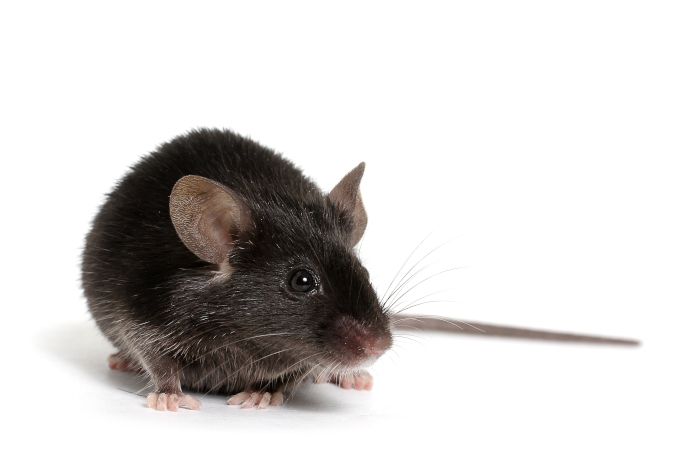Humanized Gene Knock-in Strategy
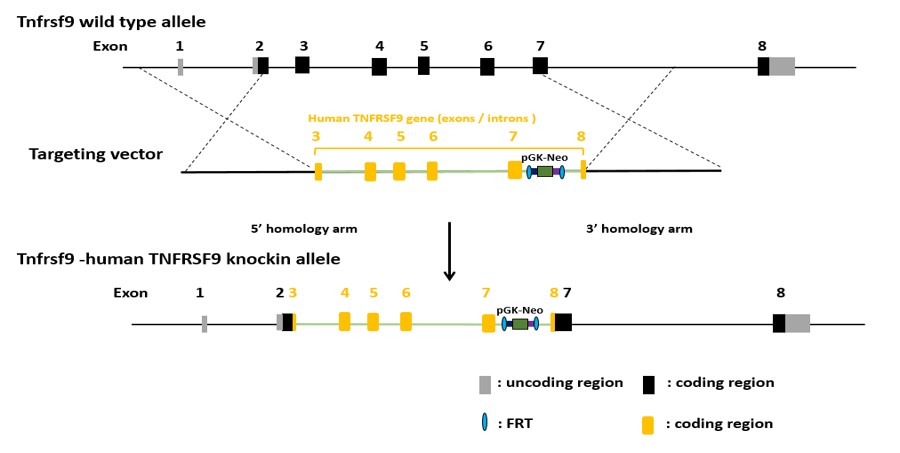
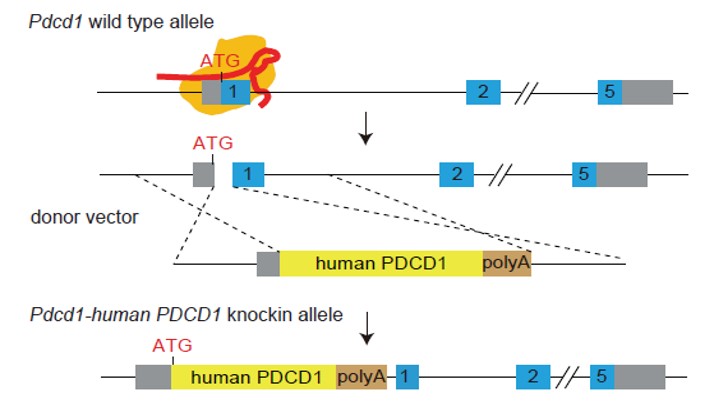
Validation Data: 4-1BB (2)
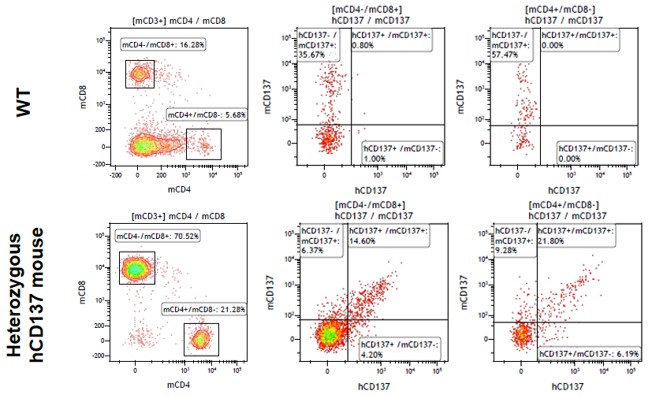
Figure 1. Expression of humanized CD137 (4-1BB) in the activated spleen lymphocytes of heterozygous humanized 4-1BB mice is detected by FACS. The spleen lymphocytes of heterozygous humanized 4-1BB mice were activated by anti-CD3 and anti-CD28 for 48 hours, and then collected for staining. The expression of humanized 4-1BB was detected by FACS. The results showed that the active expression of humanized 4-1BB can be detected in both activated CD4+ and CD8+ T lymphocytes collected from heterozygous humanized 4-1BB mice. (Data in partnership with collaborators)
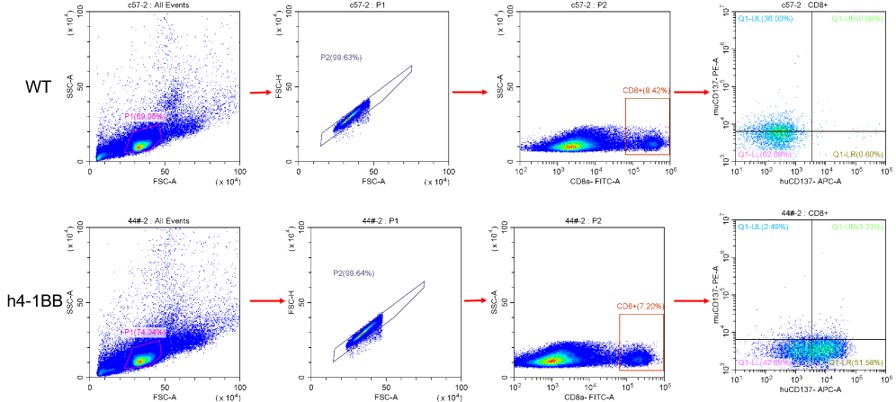
Figure 2. Analysis of human 4-1BB (CD137) expression in the spleen by FACS. The homozygous KI mouse expresses human 4-1BB on the CD8+ T cells.
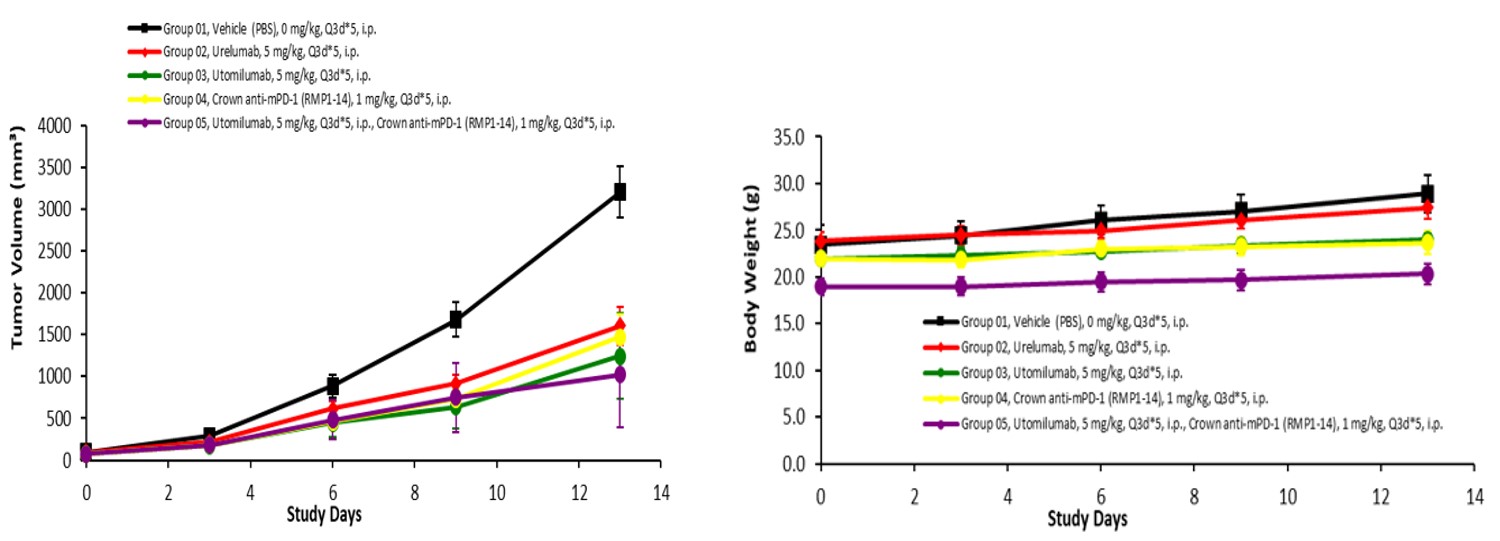
Figure 3. In vivo validation of humanized 4-1BB mice. Humanized 4-1BB mice were inoculated with MC38 colon cancer cells, and were randomly assigned into different groups (n=6) when the tumors grew to a volume of 100 mm3. Human-specific, 4-1BB antibody (Urelumab or Utomilumab) was given every three days (Q3D) for two weeks (Data in partnership with collaborators).
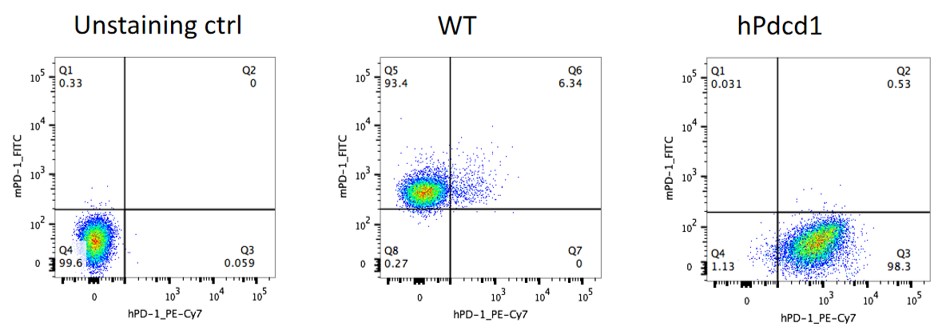
Figure 4. Expression of PD-1 in the activated spleen lymphocytes of humanized PD-1 Homozygous mice is detected by FACS.
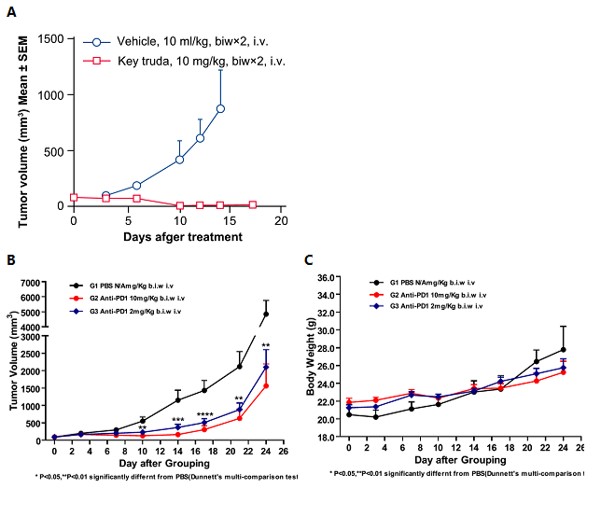
Figure 5. In vivo anti-tumor effect of an anti-human PD-1 antibody in a humanized mouse model of PD-1. Anti-human-PD-1 drugs significantly inhibited the growth of MC38 tumors in PD-1 mice, demonstrating that the humanized PD-1 mice can be used to assess the anti-human PD-1 antibody.
A. Mean volume ± SEM of tumor tissues (Data in partnership with collaborators) In vivo validation of anti-tumor efficacy in a MC38 tumor-bearing model of humanized PD-1 mice. Homozygous humanized PD-1 mice were inoculated with MC38 colon cancer cells. After the tumors grew to 100 mm3, the animals were randomly assigned into a control group and a treatment group (n=8). The drug was given twice a week for a total of 4 administrations. The results showed that Keytruda, a drug targeting human PD-1, exerted a very significant anti-tumor effect (p<0.001), demonstrating that the humanized PD-1 mice are a good in vivo model for validating the efficacy of antibodies targeting human PD-1.
B. Mean volume ± SEM of tumor tissues. C. Mean body weight ± SEM of mice (Data in partnership with collaborators)
In vivo dose validation of anti-tumor efficacy in a MC38 tumor-bearing model of humanized PD-1 mice. Homozygous humanized PD-1 mice were inoculated with MC38 colon cancer cells. After the tumors grew to about 90 mm3, the animals were randomly assigned into a control group and a treatment group (n=9). The results showed that the antibodies targeting human PD-1 showed a very significant antitumor effect (p<0.001), and such antitumor effect is dose-dependent.
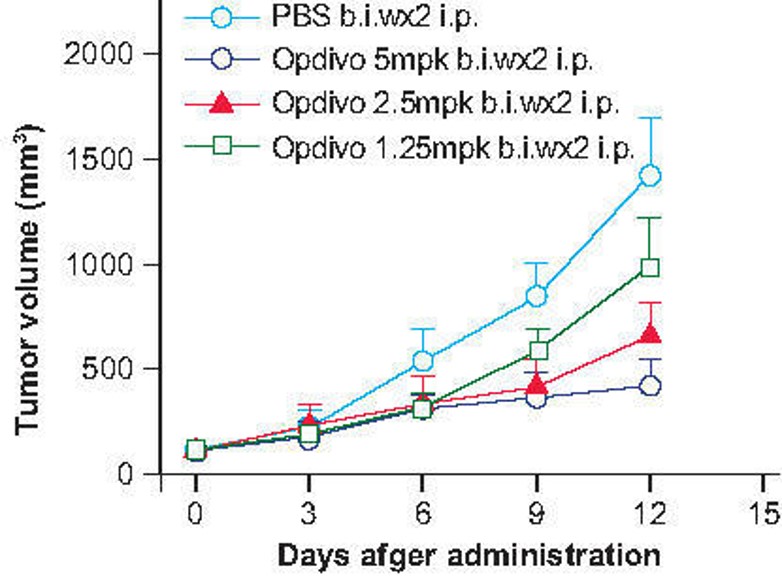
Figure 6. In vivo dose validation in a MC38 tumor-bearing model of humanized PD-1 mice. Homozygous humanized PD-1 mice were inoculated with MC38 colon cancer cells. After the tumors grew to 100 mm3, the animals were randomly assigned into a control group and a treatment group (n=8). The drug was given twice a week for a total of 4 administrations.


